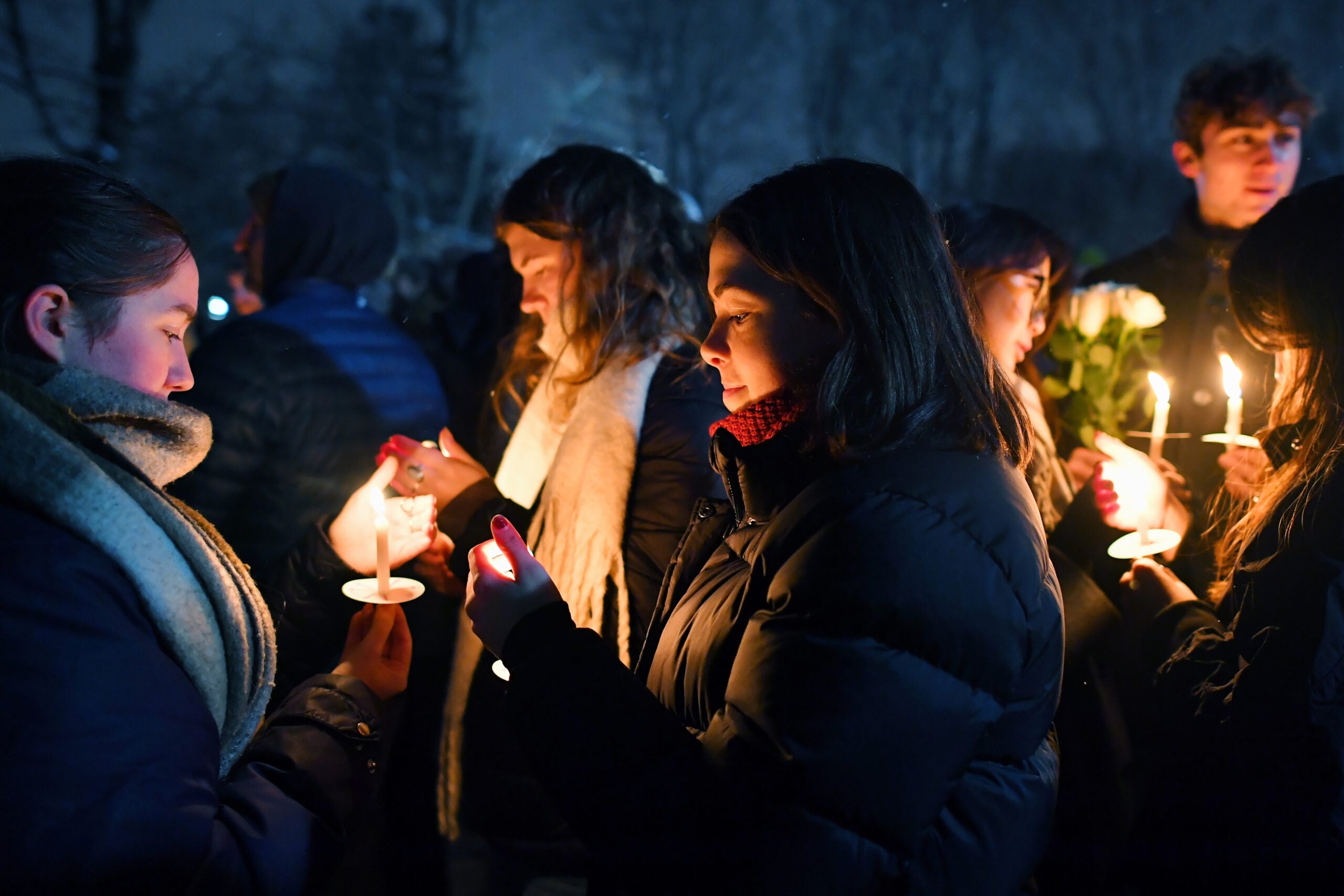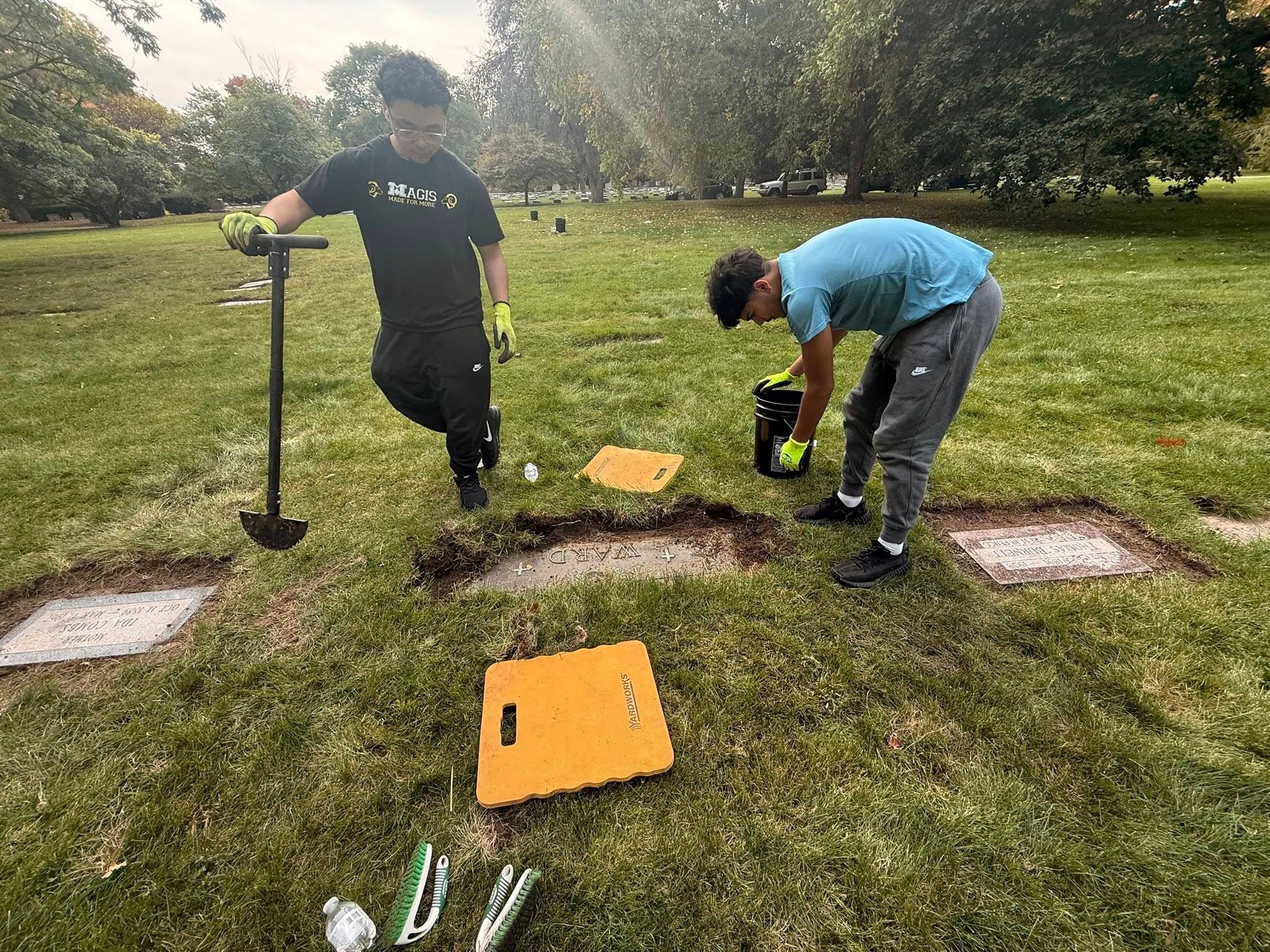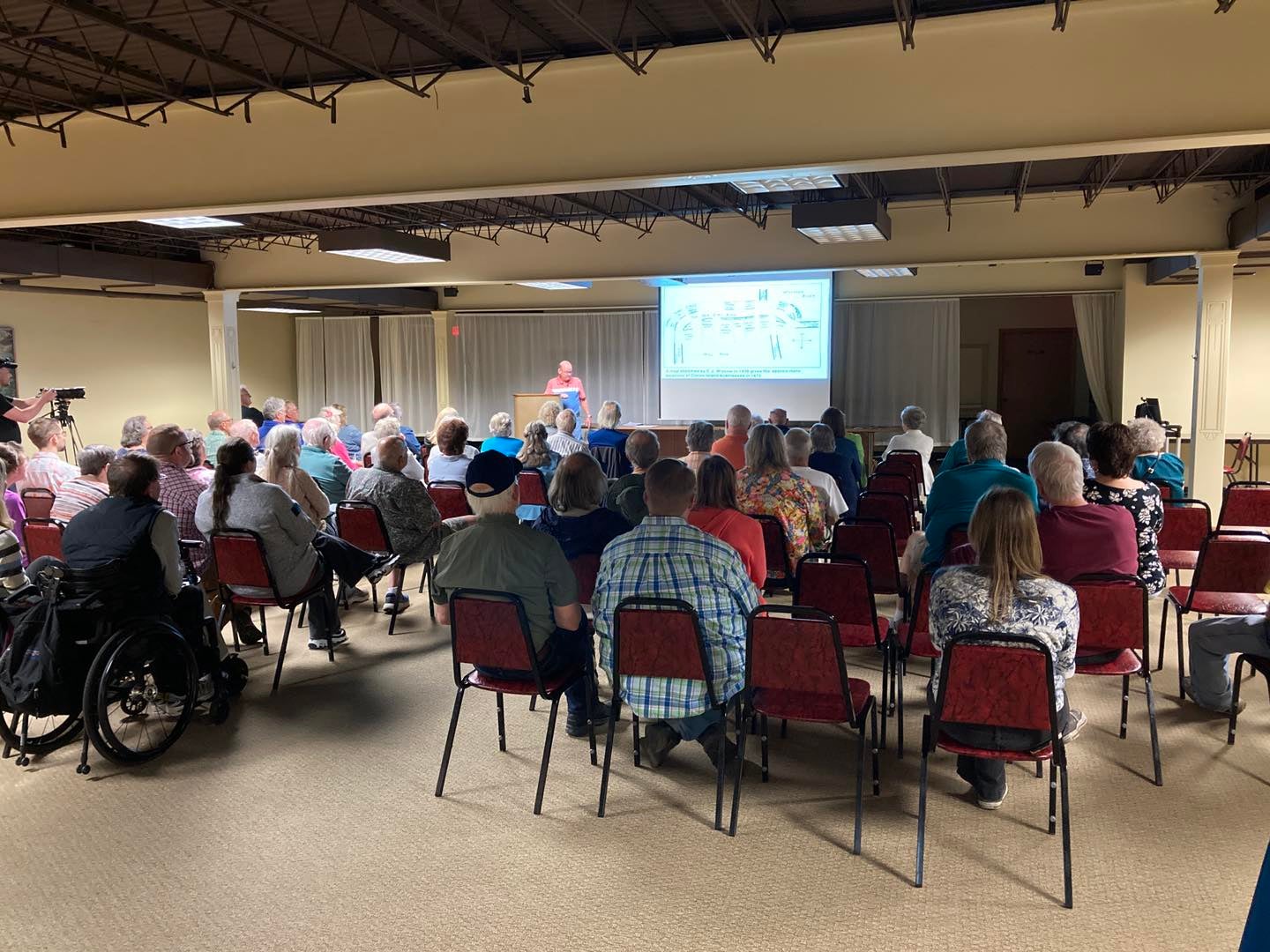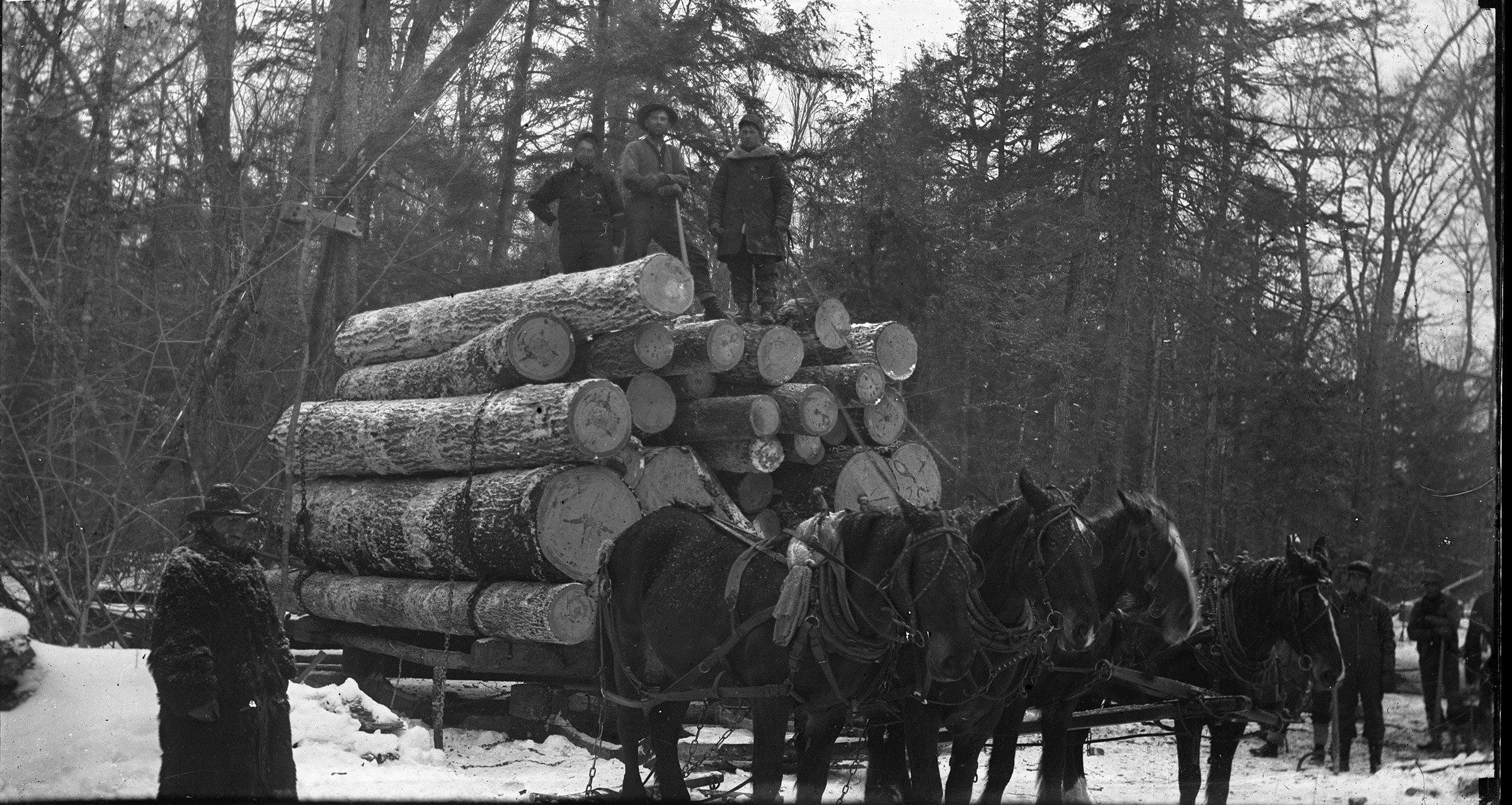While there were at least 30,000 members of Milwaukee’s Latino community in 1970, only 12 such students enrolled at the University of Wisconsin-Milwaukee for that school year.
Armed with the audacity to believe that their young people deserved an education, María Cruz said organizers sprang into action. The advocacy came from many, including the Brown Berets, a youth-centered group that started during the Chicano Movement.
First, they tried negotiating with the university, but that effort proved fruitless. So, they marched. They held a campout, “waiting out until someone paid attention to them,” she said.
News with a little more humanity
WPR’s “Wisconsin Today” newsletter keeps you connected to the state you love without feeling overwhelmed. No paywall. No agenda. No corporate filter.
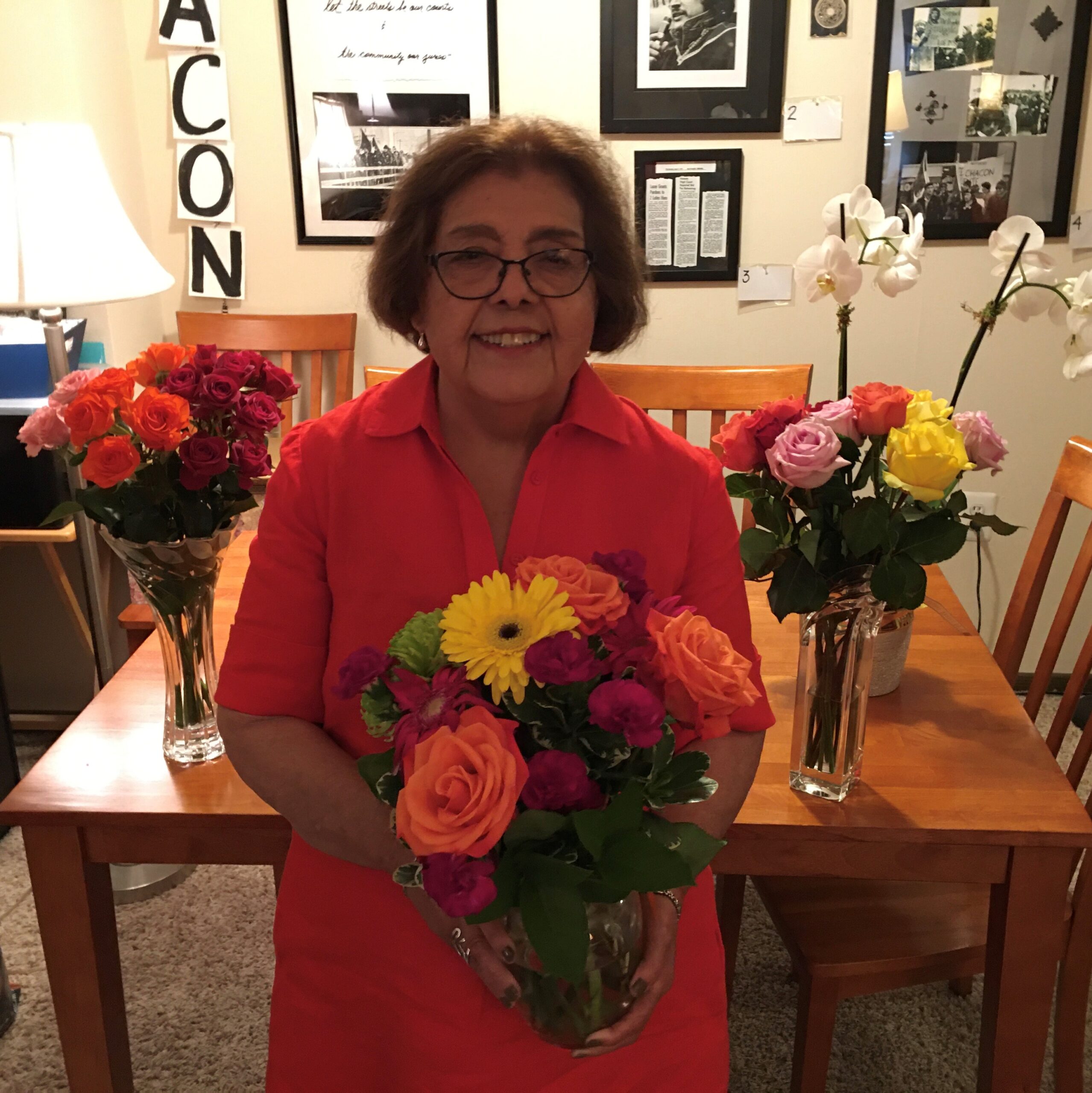
As she spoke Monday on WPR’s “The Morning Show,” Cruz sat in her living room looking at photos. One showed the Brown Berets under a tree. Another showed Maria Moreno, a small and quiet woman who was nonetheless always marching and who eventually became lead secretary and coordinator for the Latin American Union for Civil Rights.
“She was a student at that time,” Cruz said of Moreno. “Out on the campus. Reading her book. Waiting to be heard.”
Knowing your history provides the fuel to fight for a better tomorrow. That’s why Cruz, a retired educator, said learning is so vital, and why at age 82, she is writing a book, documenting the histories of the Brown Berets and connecting the new generation to its predecessors.
“At that time, our minds are fresh,” she said of middle- and high school students. “We are impressed by a lot of things — fashion, music and what have you. Why not inculcate in our children an appreciation for history? Why not inculcate in them an inquisitive mind of who they are and from where they come?”
Cruz said she hopes the next class of Brown Berets will ask questions, challenge the status quo, forge forward and be good citizens.
Past and present
Joining Cruz on “The Morning Show” was Ramona Villarreal, an activist and Brown Berets leader from the 1970s, and Walter Garron, the current state commander of the group.
Villarreal, who started organizing at 16, has done a lot of marching. One time, it was from Milwaukee to Madison. She said they marched for better wages, improved housing and facilities for migrant workers, as well as the broader rights of the Latino community.
“One person cannot do it all,” she said.
Villarreal and her family of 15 brothers and sisters came to Wisconsin from Texas in search of a better life. But being a migrant worker didn’t come with a lot of money. Life was hard. She said they were treated like they had no rights.
“We were not treated well,” she said. “But we opened the doors. We were the pioneers.”
She was between 13 and 15 years old when she joined the picket line. She said she was leading the Brown Berets only a few years later at age 17 or 18. She later worked as a teacher herself, and her advice to the next set of Brown Berets aligns with Cruz’s philosophy: Get educated.
Garron is thankful for the work from those before him. But it’s more than appreciation — it’s inspiration.
As he leads the state’s Brown Berets now, he said the COVID-19 pandemic brought food insecurity to the forefront. They partnered with other groups to feed more than 16,000 families over the last two years. They passed out masks and encouraged people to get vaccinated.
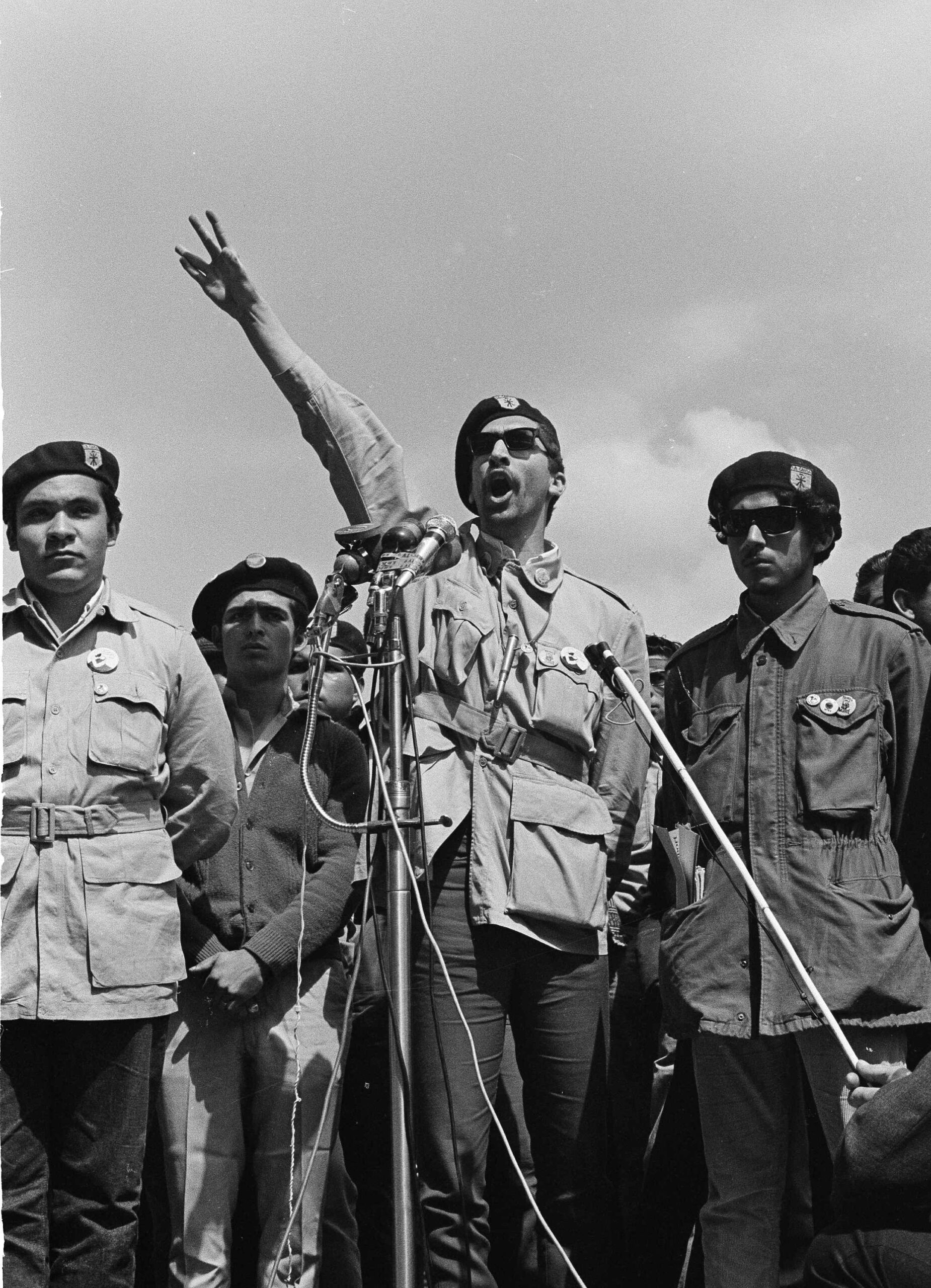
He said they have had to take matters into their own hands after getting too much “lip service” from politicians on all sorts of issues.
“We are quite frankly tired of it,” Garron said. “So, we tried to wake up our community and show that we have a power not only economically but actually by voting.”
As a union representative for many years who worked as a health and safety director, he also deeply cares about creating safer environments for migrant workers, especially during the pandemic.
But while apart in age, the different generations aren’t apart in mission.
“We had a purpose, and we had goals to accomplish. And little by little, we did. We made a difference,” Villarreal said. “But we’re not done. Once you are an activist, you will always be an activist for the rest of your life.”
‘Erased’
Cruz wasn’t planning on writing a book at this age. But during the pandemic shutdowns, she started reading. Reading led to scanning the internet. Scanning led to digging in digital archives at UW-Milwaukee.
“I put these weeks and months to use,” she said.
She is expecting to have enough funds to self-publish her book, tentatively titled “Los Brown Berets de Wisconsin,” by July. She received a donation from some Brown Beret members and she has been adding some of her own money along the way.
Her goal is to start with having the book in Milwaukee schools, but hopefully it will catch on and make its way to libraries in schools statewide.
She’s also sharing her work through speech. Cruz is slated to speak at the Brown Beret’s first annual Zoot Suit Ball on July 9 at Milwaukee Turner Hall.
Cruz’s parents were born in Mexico. June will mark 45 years that she has lived in Wisconsin. She believes it’s a “beautiful state in so many ways.”
“But it also has a dire history,” she continued. “Especially when it comes to fully accepting — who knows, maybe never — a minority population.”
She’s still doing her part, though because she said the alternative is worse. She’s worried about the latest push across the state and country to erase “certain parts of our history.”
“We must educate our young people. Without education (and) without information, you know what’s going to happen?” she said. “Our history will be revised. We will not be heard. We will be erased from history if we do not educate our youth.”
Wisconsin Public Radio, © Copyright 2025, Board of Regents of the University of Wisconsin System and Wisconsin Educational Communications Board.



